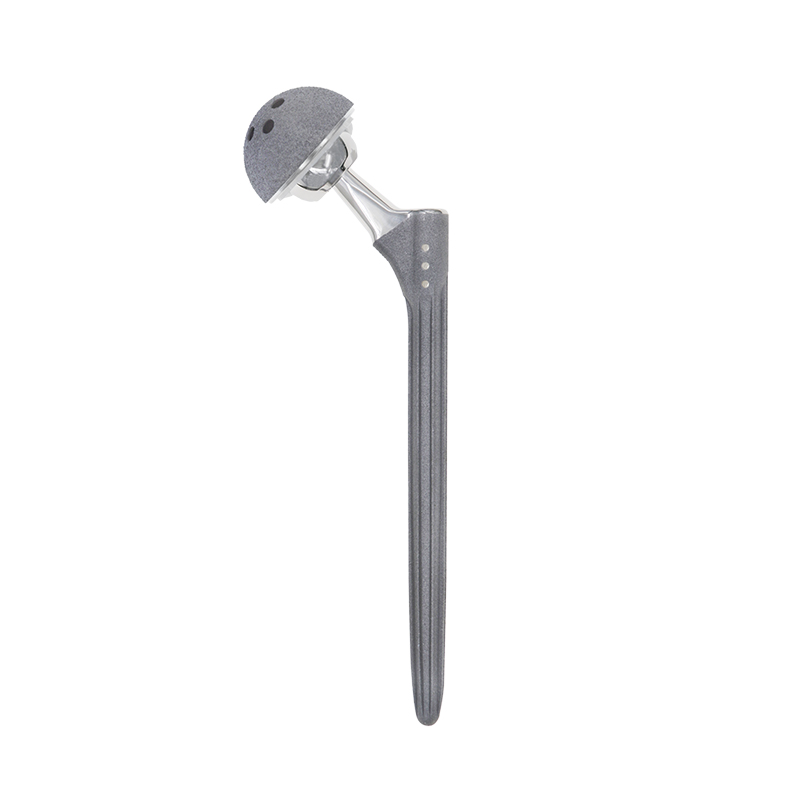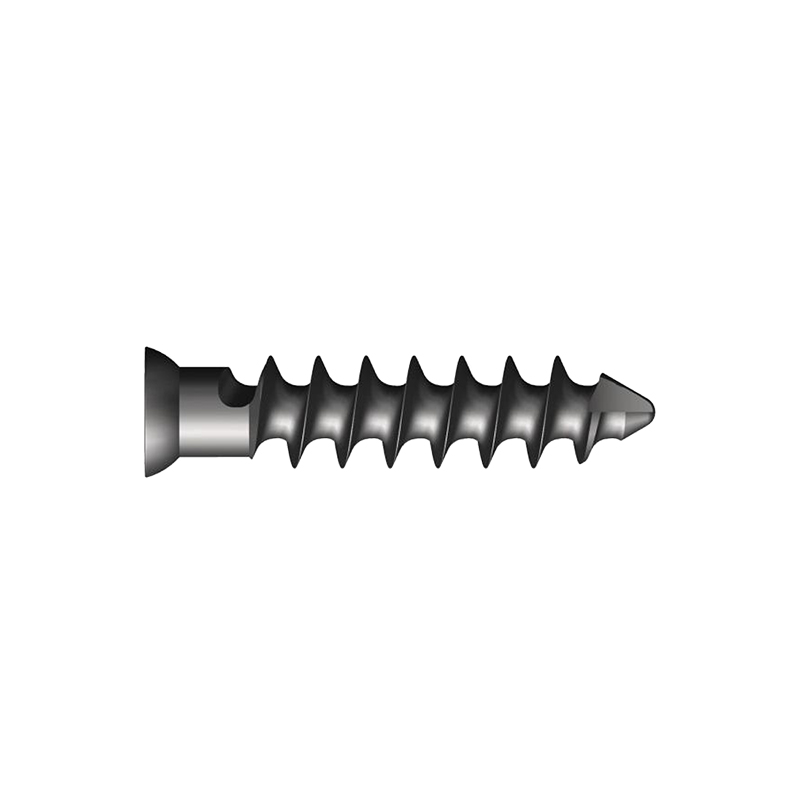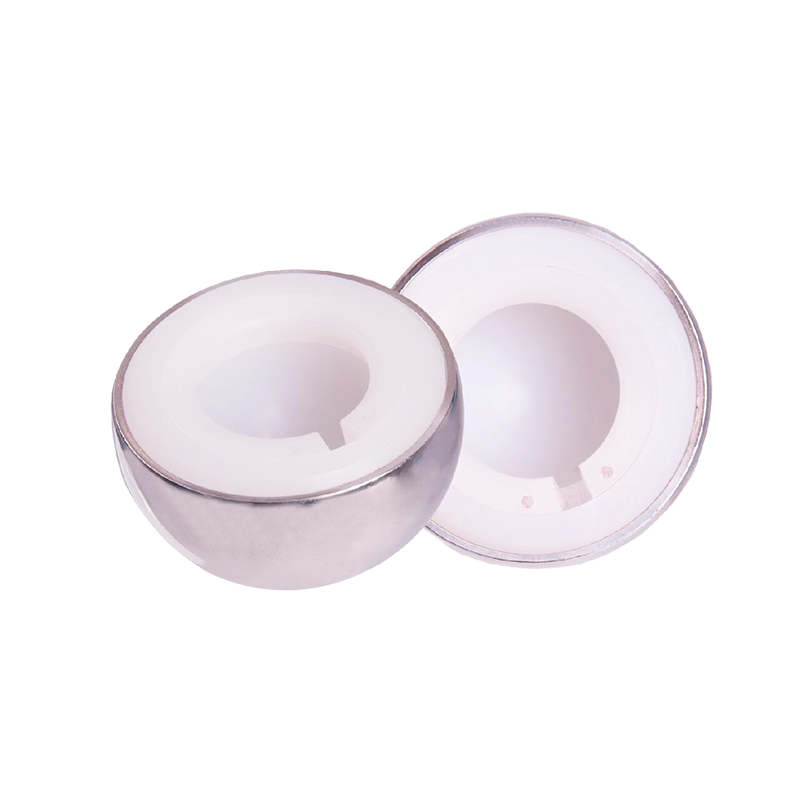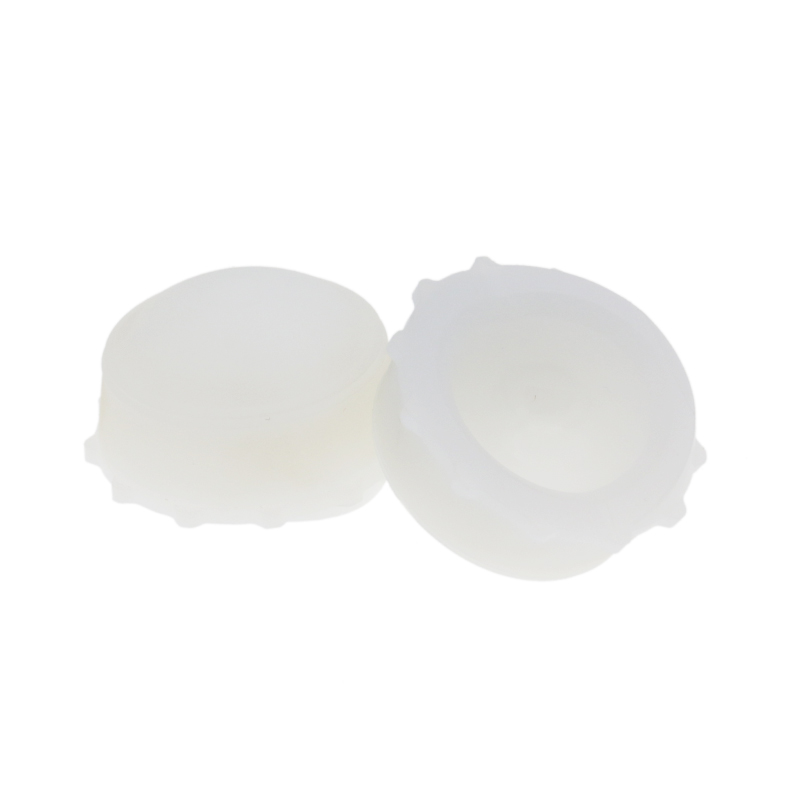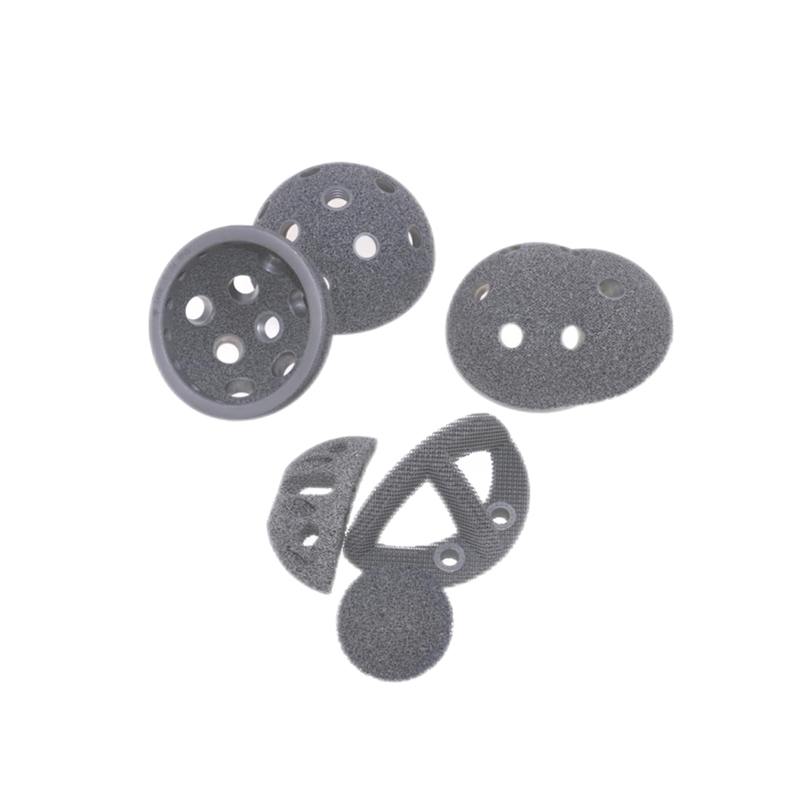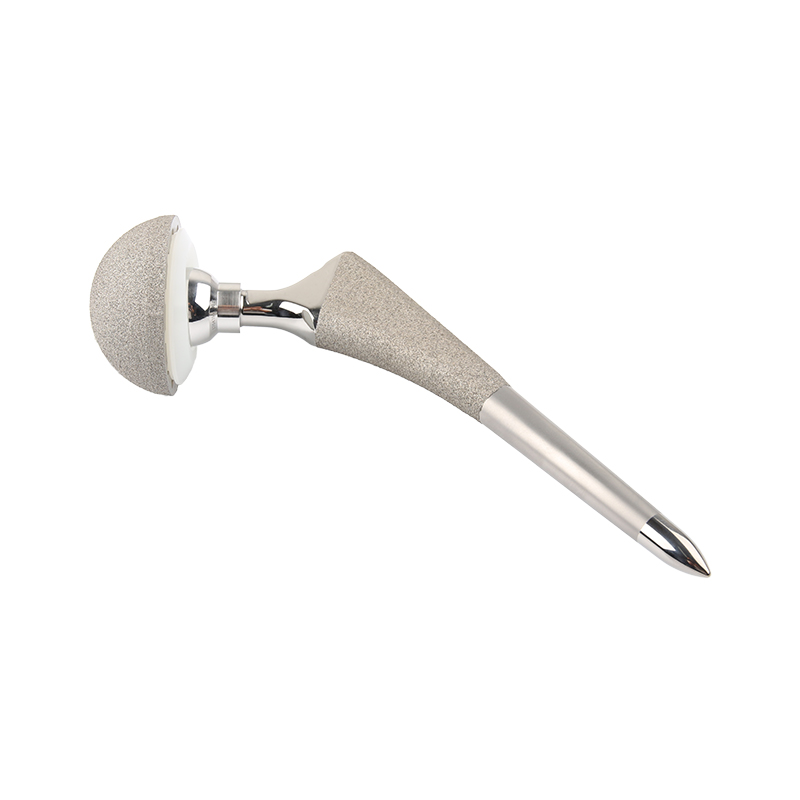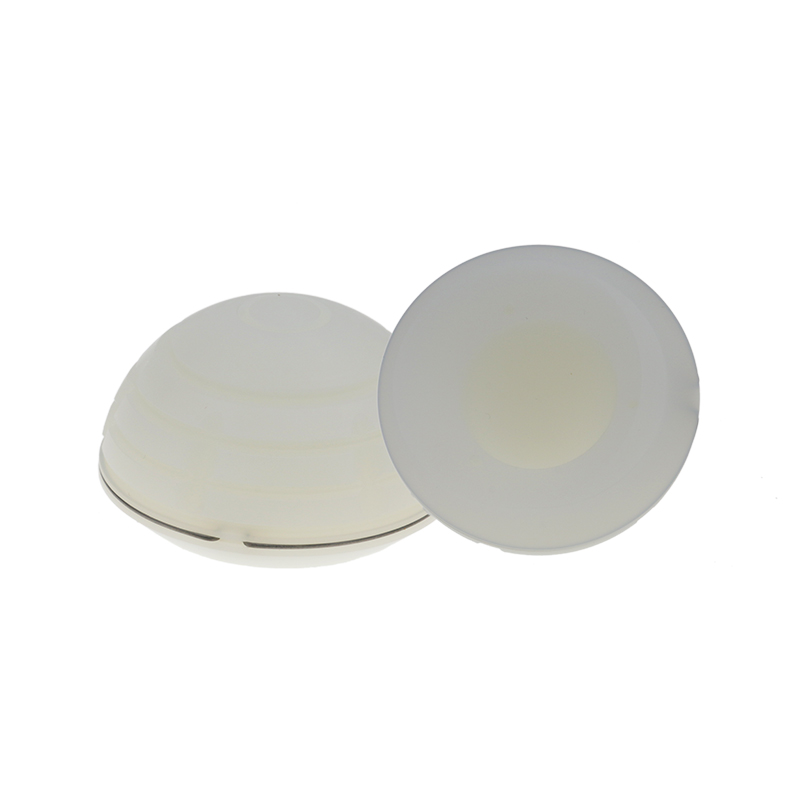DDS Titanium Revision Femoral Stem for post hip replacement
Product Description
● 135° CDA
● Tapered neck design to increase range of motion
● Offset from 40 - 44 mm
● Proximal 3 suture holes

Circular cross-section of femoral stem
Anteversion angle can be adjusted freely
Use medullary cavity drill only for better protection and preservation of bone

The femoral stem shaft is designed with a 2° taper.
● Allow uniform load conduction between bone and prosthesis, press-fit anchoring to obtain initial stability and prevent prosthesis from sinking
● The surface of the prosthesis is carborundum rough surface, which supports bone integration and provides secondary stability of the prosthesis.




Multiple longitudinal convex ribs on the femoral stem
8 longitudinal ribs extend from the lower edge of the femoral neck to the whole prosthesis, which can anchor the cortical bone, so as to increase the initial and rotational stability of the prosthesis.
Indications
● Primary artificial hip replacement
● Proximal femur deformity
● Proximal femur fracture
● Osteosclerosis of the proximal femur
● Proximal femoral bone loss
● Revision artificial hip joint replacement
● Periprosthetic femoral fractures
● Prosthetic loosening
● Infections is controlled after replacement
Design Principle
The design principles for DDS cementless revision stems are focused on achieving long-term stability, fixation, and bone ingrowth. Here are some key design principles:
Porous Coating: Cementless revision stems typically have a porous coating on the surface that comes in contact with the bone. This porous coating allows for enhanced bone ingrowth and mechanical interlocking between the implant and the bone. The type and structure of the porous coating can vary, but the goal is to provide a rough surface that promotes osseointegration.
Modular Design: Revision stems often have a modular design to accommodate various patient anatomies and allow for intraoperative adjustments. This modularity allows surgeons to select different stem lengths, offset options, and head sizes to achieve optimal fit and alignment.Enhanced Proximal Fixation:
DDS Cementless revision stems may incorporate features such as flutes, fins, or ribs in the proximal portion to enhance fixation. These features engage with the bone and provide additional stability, preventing implant loosening or micromotion.
Clinical Application

Product Details
|
DDS Cementless Revision Stem |
13# 190 mm |
|
13# 225 mm |
|
|
14# 190 mm |
|
|
14# 225 mm |
|
|
14# 265 mm |
|
|
15# 190 mm |
|
|
15# 225 mm |
|
|
15# 265 mm |
|
|
16# 190 mm |
|
|
16# 225 mm |
|
|
16# 265 mm |
|
|
17# 225 mm |
|
|
17# 265 mm |
|
|
18# 225 mm |
|
|
18# 265 mm |
|
|
19# 225 mm |
|
|
19# 265 mm |
|
|
Material |
Titanium Alloy |
|
Surface Treatment |
Carborundum Blasted Coating |
|
Qualification |
CE/ISO13485/NMPA |
|
Package |
Sterile Packaging 1pcs/package |
|
MOQ |
1 Pcs |
|
Supply Ability |
1000+Pieces per Month |

